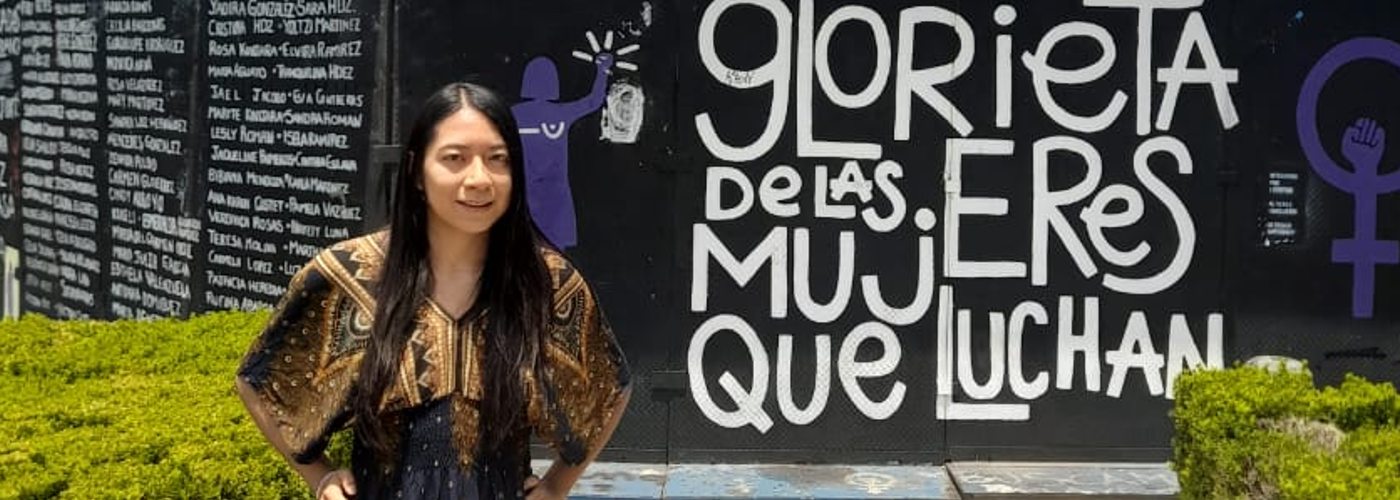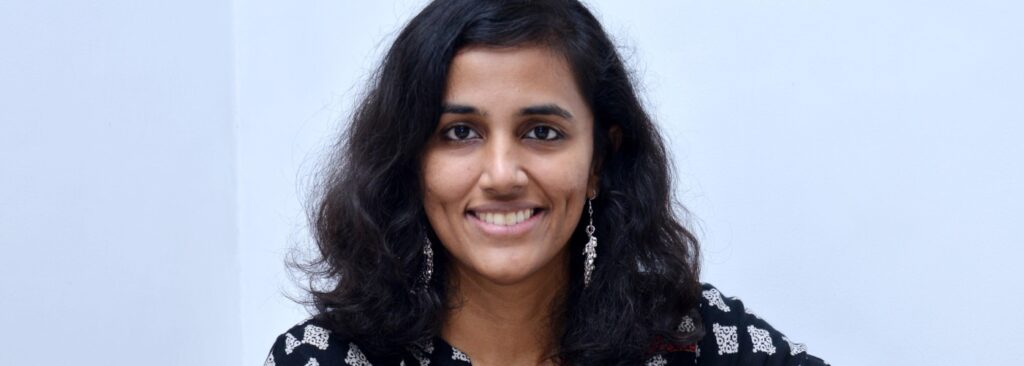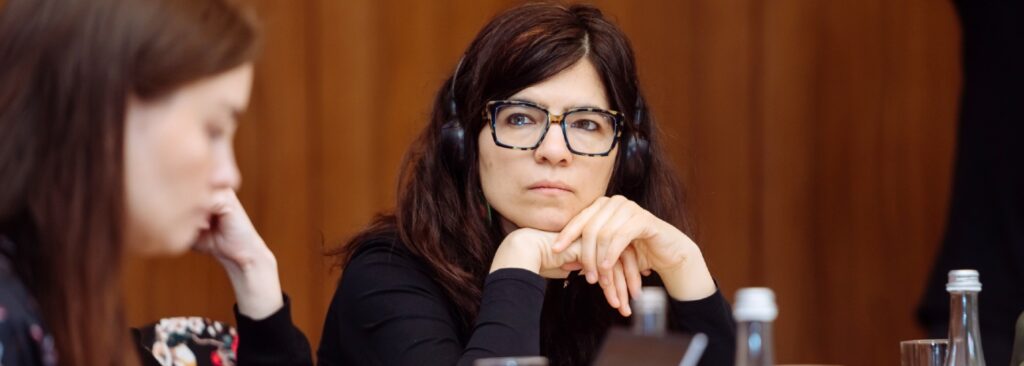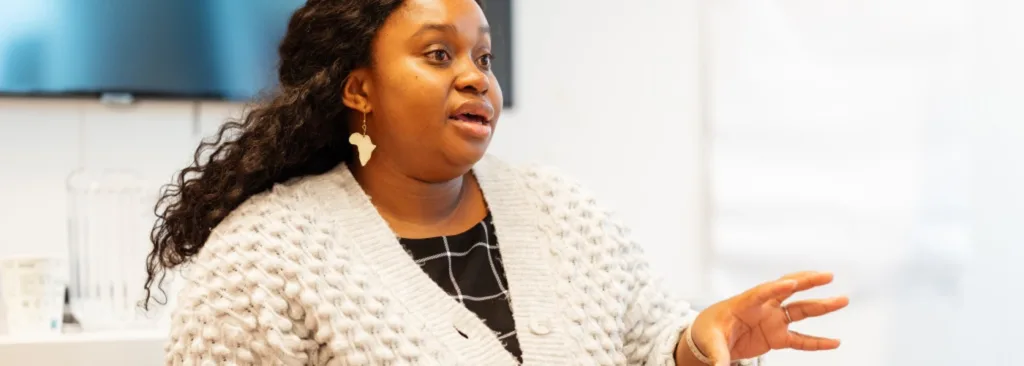The Walking the Talk consortium is proudly working with six exceptional feminists from all over the world – aka our team of ‘Walkie-Talkies’. These experts bring unique perspectives and invaluable experience to our mission of promoting Feminist Foreign policies, practices, and funding in Germany, France, the United Kingdom, the Netherlands, and the European Union.
How would you introduce yourself?
My name is Dinorah (she/her) and I am from Mexico. I studied social justice and global studies and dedicated my professional life to promoting gender equality and human rights.
Could you share with us a fun fact or something surprising about you ?
I was one of the more than 12 million Mexicans who lived abroad for a while (thanks to scholarships, and support from my parents, I lived in Kyoto and Den Haag).
What personal experiences shaped your feminist beliefs? In what way?
My family comes from rural and semi-urban areas of Mexico (Iguala and Coyuca, Guerrero) where violence against women is around 70% according to national surveys. Therefore I saw injustice against women in the community regularly. However, surprisingly enough I was introduced to feminist literature by my father who gifted me with the book Lean In by Sheryl Sandberg in preparation for college. Later on, I experienced sexism as an intern at the Senate of the Republic and a university mentor recommended me to read Rita Segato, the rest is history.
How would you explain Feminist Foreign Policy concept to someone who has never heard of it?
Feminist Foreign Policy comprises political strategies that certain countries use to promote women’s rights abroad.
Can you remember your first encounter with the FFP approach? What did you think then?
I became interested when Mexico announced the adoption of its FFP. To be honest, I was skeptical that a policy could be feminist. Since Mexico has a long-standing tradition of not maintaining coherence between domestic and foreign policy, I thought it was disrespectful. However, listening to feminist activists from Global North countries, I learned that it can help advance gender standards in specific foreign policy issues such as ODA.
What does FFP mean in your community?
In my gender activist community (definitely not among policymakers or diplomats), Feminist Foreign Policy means disrupting the unfair and historical hierarchies of the international system, so that there is no capitalism, patriarchy, heteronormativity, colonialism, or racism.
Can you please describe your dream FFP?
My dream Feminist Foreign Policy definition is a set of strategies to achieve diversity and inclusion within the Ministries of Foreign Affairs. It would mean that critical feminist organizations are key political actors in the design of foreign policies. It would also mean to ensure that feminist values of accountability and care are present in all areas (including consular policy).
In your opinion, what role can young people play in making a feminist foreign policy successful?
Young people are the largest demographic group globally according to UNFPA. They are key political actors in addressing global issues. Young feminists should be at the frontline of decision-making processes and implementation of FFP.
If you could make one wish come true: what would you change in your country or region?
I wish that in Mexico we could have an effective General Attorney Office where crimes would be investigated according to all available protocols. Meaning the end of current 99% rate of impunity.
A favorite feminist song ? ♫
Mujeres by Julieta Venegas!
About the Walkie-Talkies
The “Walkie-Talkies” are feminists with expertise and lived experiences in gender equality policies and practices. They come from diverse backgrounds and regions, bringing intersectional perspectives on issues such as climate justice funding, SRHR, gender-based violence, and feminist technology. They are committed to sharing lessons, driving positive change, and actively participating in strategic activities within the consortium.






